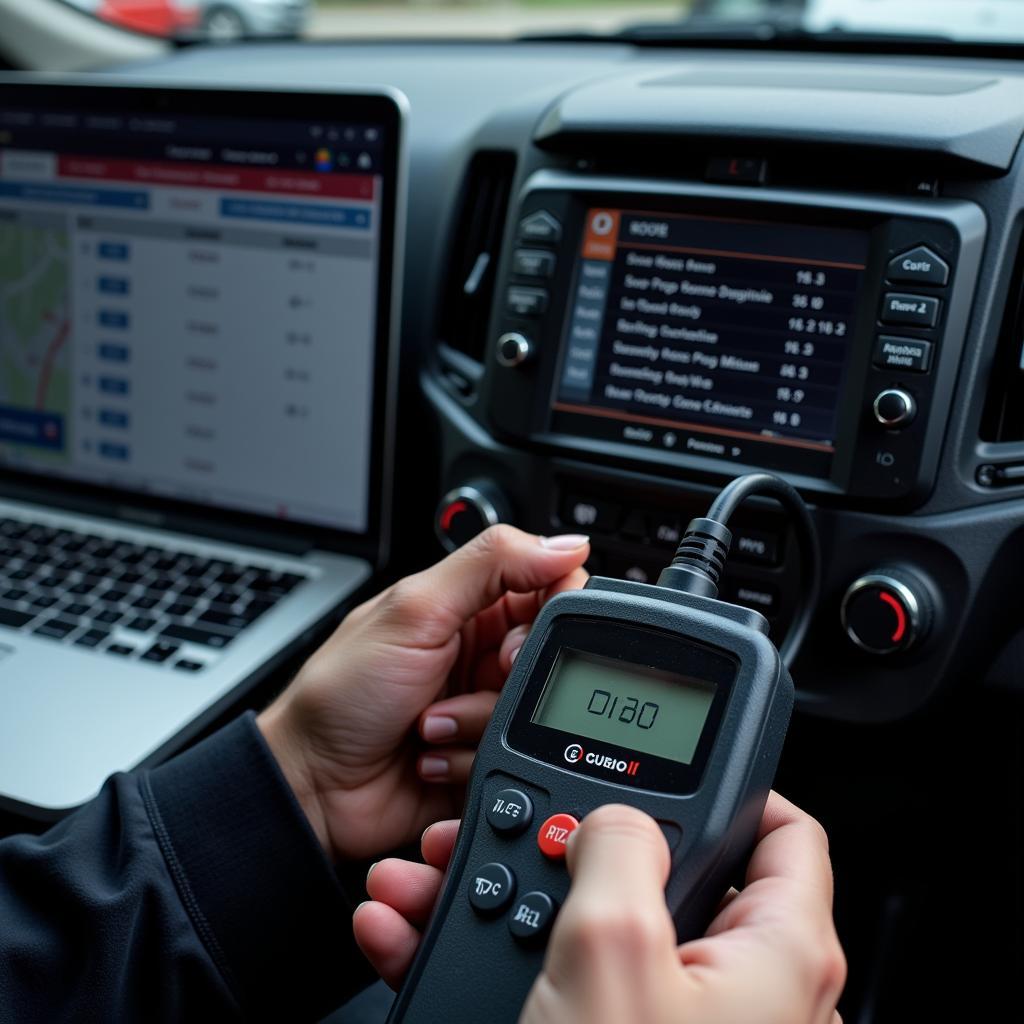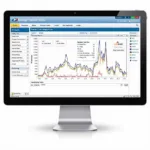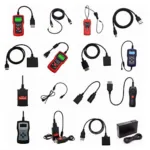When it comes to car maintenance, understanding the difference between a car diagnostic and a car inspection can save you time, money, and unnecessary headaches. While both are crucial for keeping your vehicle running smoothly, they serve distinct purposes. This article will delve into the specifics of each service, highlighting their key differences and when you might need one or both.
What is a Car Inspection?
A car inspection is a visual examination of your vehicle’s condition. Think of it as a routine check-up for your car. A certified mechanic will visually inspect your car’s major systems, including:
- Brakes: Checking for wear and tear on pads and rotors.
- Tires: Examining tread depth, pressure, and overall condition.
- Lights: Ensuring all headlights, taillights, and signal lights are functioning correctly.
- Fluids: Checking levels and condition of engine oil, coolant, brake fluid, transmission fluid, and power steering fluid.
- Belts and Hoses: Inspecting for cracks, wear, and proper tension.
- Exhaust System: Looking for leaks, rust, and damage.
Car inspections are typically required for:
- Safety Inspections: Mandatory in many states to ensure vehicles meet minimum safety standards.
- Pre-purchase Inspections: Highly recommended when buying a used car to identify potential problems before purchase.
What is Car Diagnostics?
 Car Diagnostic Tools
Car Diagnostic Tools
Unlike a visual inspection, car diagnostics delve deeper into your vehicle’s inner workings. This service utilizes advanced computer software and hardware to communicate with your car’s computer system and retrieve valuable data.
Car diagnostics can identify issues such as:
- Check Engine Light: Pinpointing the root cause of the infamous check engine light, which can range from a loose gas cap to a serious engine problem.
- Sensor Malfunctions: Detecting faulty sensors that monitor engine performance, emissions, and other vital systems.
- Electrical Issues: Identifying problems with wiring, battery, alternator, and other electrical components.
- Transmission Problems: Diagnosing issues with gear shifting, clutch performance, and overall transmission health.
car transmission problem diagnostics wny can help identify and address these issues before they escalate into major problems.
You might need car diagnostics if:
- Your check engine light is on.
- You’re experiencing unusual performance issues like stalling, rough idling, or decreased fuel efficiency.
- You want a comprehensive analysis of your car’s electronic systems.
Car Diagnostic vs. Inspection: Key Differences
| Feature | Car Inspection | Car Diagnostic |
|---|---|---|
| Purpose | Visual check of overall condition | In-depth analysis of electronic systems |
| Method | Visual examination by a mechanic | Computerized scan using specialized tools |
| Cost | Generally less expensive | Can be more expensive depending on the complexity of the issue |
| Frequency | Typically annually or as required by state law | As needed, especially when experiencing problems |
FAQs
Q: Do I need a car diagnostic if my car is running fine?
A: While not strictly necessary, a periodic diagnostic check can be beneficial in identifying potential issues before they become major problems, potentially saving you money on costly repairs in the long run.
Q: Can I perform a car diagnostic myself?
A: Basic OBD-II scanners are available for purchase, but these only provide limited information. For a comprehensive diagnosis, it’s best to consult with a qualified mechanic.
Q: How long does a car diagnostic take?
A: The time required for a diagnostic can vary depending on the complexity of the issue. However, most basic diagnostics can be completed within an hour.
Q: What should I do if my car fails an inspection?
A: If your car fails an inspection, you’ll need to get the specified repairs done to ensure your vehicle meets safety standards. Once the repairs are complete, you can have your car re-inspected.
car shops with free diagnostic near me can be a cost-effective way to ensure your vehicle is in top condition.
Conclusion
Both car diagnostics and inspections play a vital role in maintaining your car’s health and longevity. While inspections provide a general overview of your vehicle’s condition, diagnostics delve deeper into its electronic systems, identifying potential issues that might not be visible to the naked eye. Understanding the differences between these services empowers you to make informed decisions about your car’s maintenance and avoid unexpected breakdowns.
For more information on car diagnostics, you can check out our article on diagnostic car problems. If you’re in the Bristol, RI area and require professional car diagnostic services, feel free to contact us at car diagnostic bristol ri. We also offer expert advice on car stereo diagnostics.
If you need assistance, please contact us via WhatsApp: +1(641)206-8880, or Email: [email protected]. Our customer support team is available 24/7.

